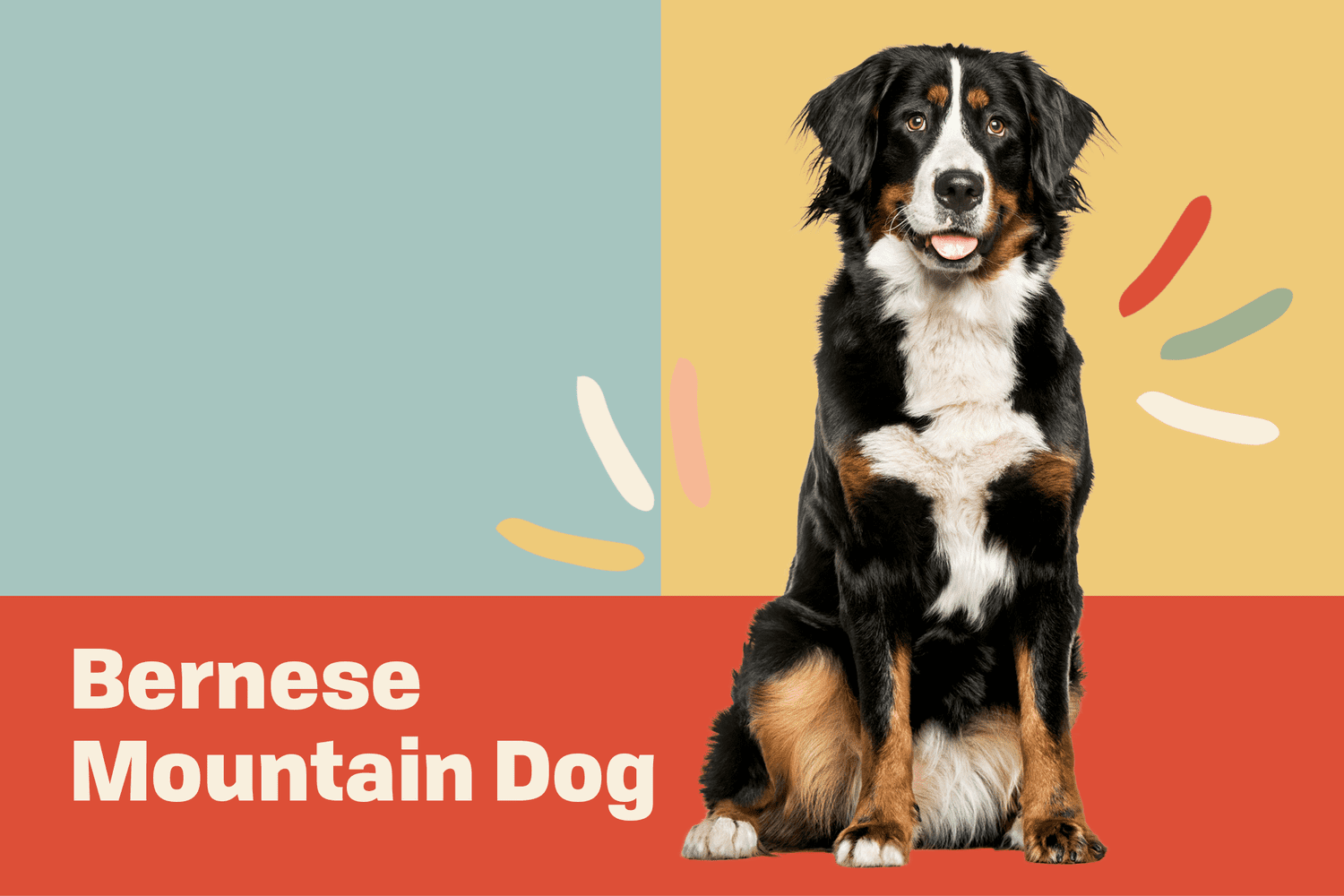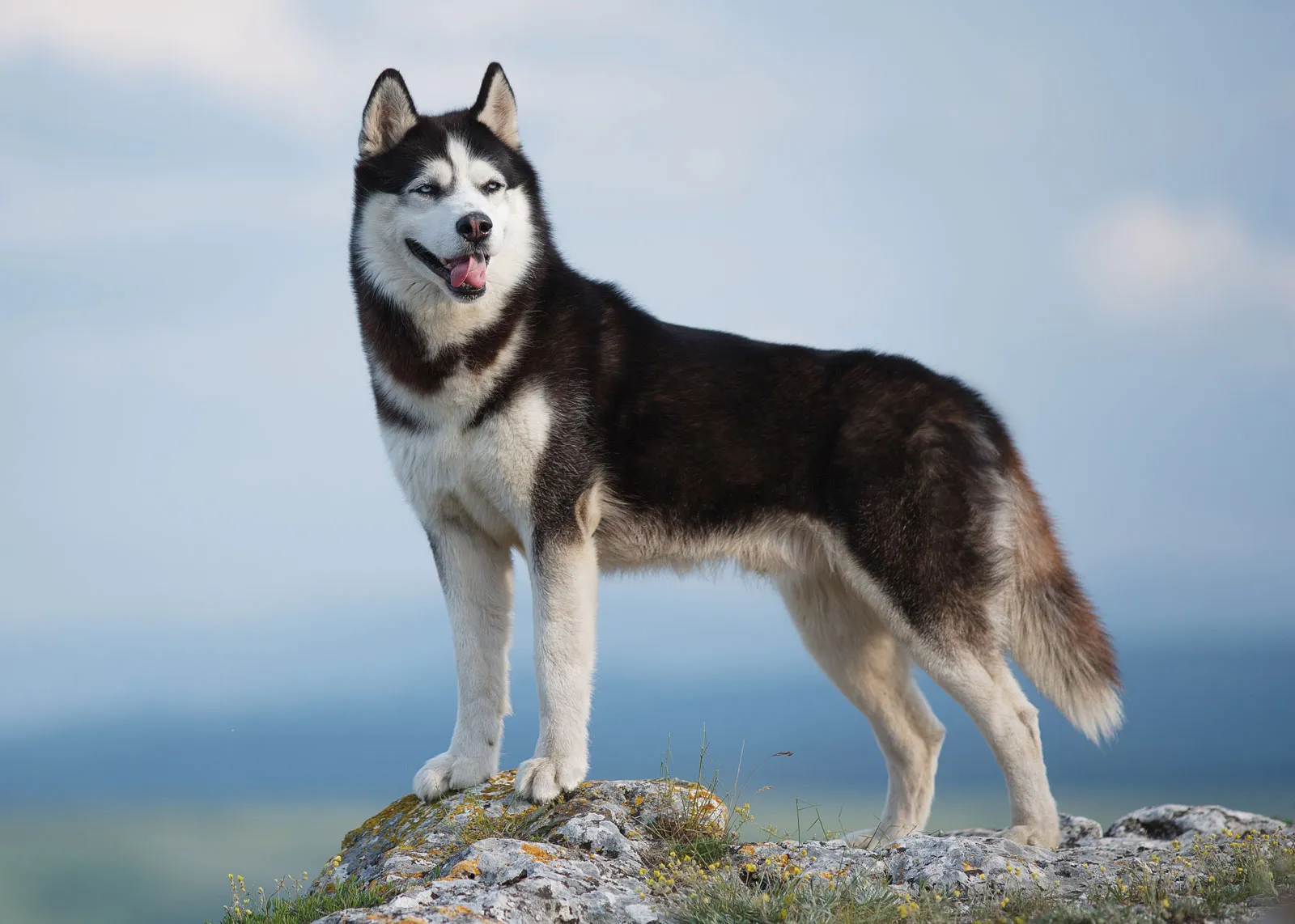Complete Guide to Bernese Mountain Dog: How to Choose, Train, Care, Pros and Cons, and Price
The Bernese Mountain Dog (or Bernie) is a majestic and gentle breed known for its striking tri-color coat and friendly nature. Originally bred to work as a farm dog in the Swiss Alps, the Bernese Mountain Dog is a large and powerful dog that is also affectionate, loyal, and great with families. This article provides a comprehensive guide to the Bernese Mountain Dog, covering everything from how to choose the right dog, training, and care, to understanding the breed’s pros and cons and cost of ownership.
Breed Overview
| Detail | Description |
|---|---|
| Size | Large |
| Weight | 70–115 pounds (31–52 kg) |
| Height | 23–28 inches (58–71 cm) |
| Life Expectancy | 7–10 years |
| Coat | Long, thick, tri-colored (black, white, and tan) |
| Temperament | Gentle, affectionate, intelligent |
| Activity Level | Moderate to High |
| Good with Children | Yes |
| Good with Pets | Yes, but supervision may be needed |
| Grooming Needs | High |
| Training | Moderate |
History of the Bernese Mountain Dog
The Bernese Mountain Dog, also called the Berner Sennenhund, hails from the canton of Bern in Switzerland. It was originally bred to work on farms, particularly for herding cattle and pulling carts. The Bernese Mountain Dog is one of four Swiss mountain dog breeds, with the other three being the Appenzeller, Entlebucher, and Greater Swiss Mountain Dog.
The breed was valued for its strength, work ethic, and versatility, as it helped farmers with a range of tasks such as guarding, herding, and pulling carts. Despite their working background, Bernese Mountain Dogs are known for their calm and gentle temperament, making them excellent family companions.
How to Choose a Bernese Mountain Dog
When selecting a Bernese Mountain Dog, there are a few factors to consider to ensure you are getting a healthy and well-adjusted puppy:
1. Reputable Breeder
It is crucial to find a reputable breeder who is committed to breeding healthy, well-socialized Bernese Mountain Dogs. Look for breeders who:
- Health test their dogs for common breed-related health issues like hip dysplasia, elbow dysplasia, and certain heart conditions.
- Provide a health guarantee and detailed documentation of the puppy’s health history.
- Allow you to visit the breeding facility and meet the puppies’ parents.
- Breed for temperament, not just appearance.
2. Rescue or Adoption
If you are open to adopting, consider checking local rescues and shelters for Bernese Mountain Dogs in need of a home. Adopting an older dog can be an excellent way to provide a loving home to a dog in need. Many rescues also perform health and temperament evaluations, which can give you a good idea of the dog’s personality and potential health issues.
3. Temperament Assessment
When choosing your Bernese Mountain Dog, observe the puppy’s behavior:
- Look for a confident, friendly, and well-socialized pup. Berners are generally calm but can be shy if not properly socialized early on.
- Avoid puppies that are overly fearful or aggressive, as these traits may indicate temperament problems that could be harder to manage in the long term.
How to Train a Bernese Mountain Dog
Bernese Mountain Dogs are intelligent and eager to please, making them relatively easy to train, though they do have a stubborn streak. Here’s a step-by-step guide to training your Bernese Mountain Dog:
1. Start Early
- Begin socializing your Bernese Mountain Dog puppy as early as possible to ensure it grows up to be well-adjusted and comfortable with different environments, people, and other animals.
- Expose your puppy to a variety of sights, sounds, and experiences to reduce the likelihood of fear-based behaviors later in life.
2. Use Positive Reinforcement
- Positive reinforcement methods work best with Berners. Use treats, praise, and affection to reward desired behaviors.
- Be patient but consistent. Berners can be independent at times, so gentle persistence is key.
- Begin with basic commands such as sit, stay, and come. These foundational commands will help you develop a good communication system with your dog.
3. Leash and Crate Training
- Bernese Mountain Dogs are large and strong, so it’s essential to start leash training early to ensure they are well-mannered when out on walks.
- Crate training is also highly recommended to help your dog feel safe and secure in its environment. A crate can be a useful tool for house training and providing a comfortable, safe space.
4. Obedience Training
- While Bernese Mountain Dogs are generally gentle and easy-going, they can be protective, which means consistent obedience training is crucial. Teach your dog to respond reliably to commands, especially in situations where they may need to be calm and controlled.
How to Care for a Bernese Mountain Dog
Taking care of a Bernese Mountain Dog involves more than just feeding and exercising; they require regular grooming, veterinary visits, and lots of attention to their emotional and physical needs.
1. Exercise Needs
- Despite their large size, Bernese Mountain Dogs have moderate exercise requirements. Daily walks and time spent playing in the yard will suffice, but they should be mentally stimulated as well.
- It’s important not to over-exercise a puppy, especially in the early stages, as excessive activity can cause joint issues down the line.
- Bernese Mountain Dogs enjoy playing games like fetch, but always be mindful of their joints due to their large frame.
2. Grooming Requirements
- Berners have long, thick double coats that shed heavily, especially during seasonal changes. Regular brushing is necessary, ideally 2–3 times a week, to prevent mats and tangles.
- They are prone to shedding, so expect to vacuum frequently and keep up with regular grooming sessions.
- Bathing should be done every few months or as needed, but be sure to use a dog-specific shampoo to avoid skin irritation.
3. Diet and Nutrition
- Feed your Bernese Mountain Dog high-quality dog food that meets their nutritional needs. Choose food with high protein content and avoid foods that contain fillers such as corn or soy.
- Puppies require special food tailored to their growth stage. Adult dogs may require fewer calories to prevent obesity, which is a common issue in this breed.
- Always provide fresh water throughout the day, especially after exercise.
4. Health Considerations
- Regular veterinary check-ups are essential to monitor for common health issues, such as hip dysplasia, elbow dysplasia, and bloat.
- Due to their size, Bernese Mountain Dogs can be prone to joint problems, so maintaining a healthy weight and avoiding excessive exercise is crucial.
- Life expectancy for this breed is shorter than many other breeds, with many living 7–10 years, so early health monitoring is key.
Pros and Cons of Bernese Mountain Dogs
Pros
- Great Family Dog: They are affectionate, patient, and great with children, making them perfect companions for families.
- Gentle Nature: Bernese Mountain Dogs are calm, even-tempered, and friendly, often getting along with other pets and animals.
- Loyal and Protective: They are protective of their families, which makes them excellent watchdogs.
- Beautiful Coat: Their thick, tri-colored coat is one of the most stunning in the dog world.
Cons
- Short Lifespan: Berners tend to have a shorter lifespan compared to other breeds, often living only 7–10 years.
- Heavy Shedding: The long, thick coat requires regular grooming, and shedding can be quite a chore.
- Health Issues: This breed is prone to several hereditary health issues, including joint problems, heart disease, and certain cancers.
- Large Size: Due to their size, they can be difficult to manage, especially for first-time dog owners or those in small living spaces.
Price of a Bernese Mountain Dog
The cost of a Bernese Mountain Dog can vary significantly depending on the breeder, location, and the dog’s lineage. On average, expect to pay:
- From a reputable breeder: $1,000 – $2,500
- From a rescue or shelter: $100 – $500
- Maintenance Costs: Expect to spend about $1,000 – $2,000 annually on food, grooming, and medical expenses.
Conclusion: Is the Bernese Mountain Dog Right for You?
The Bernese Mountain Dog is a fantastic breed for those who have the space, time, and energy to care for a large, affectionate dog. While they do require attention to grooming and health, their gentle and loyal nature makes them a wonderful addition to the right family.
If you’re looking for a dog that is loving, intelligent, and protective, and you can handle the grooming and health care requirements, the Bernese Mountain Dog could be the perfect choice for you.




